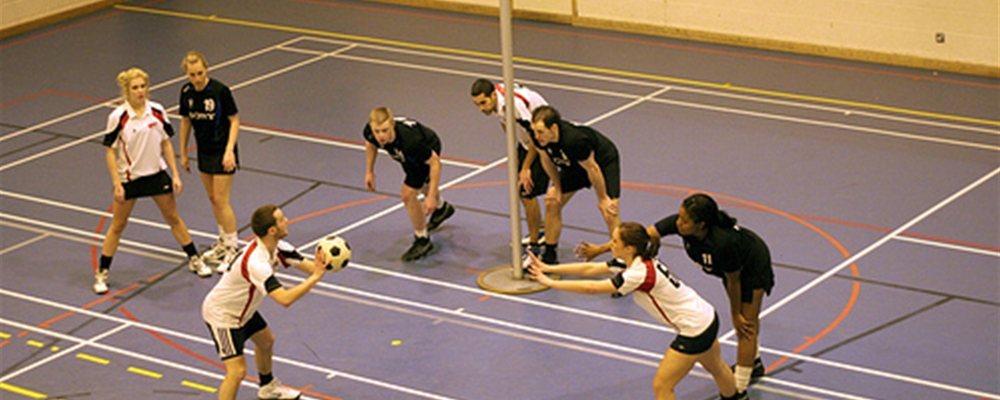Korfball was invented by a teacher wanting a game where girls and boys could play together without any advantage to either gender.In the process korfball was developed with an emphasis on:
- ball skills and movement without contact
- all round ability rather than specialisation
- cooperative play rather than solo play
Korfball also provides an excellent foundation on which to develop the social skills – especially as they relate to inter-gender relations.
In schools, Korfball is highly relevant to meeting the objectives of the new Australian Curriculum and there are a few key areas where it can provide assistance to students:
- students value learning about cooperation by playing together to achieve goals (rule: must be mixed 2 male + 2 female working together in each half of the court, no solo play – rules support cooperation)
- students develop skills in association with the other gender (e.g. ball handling – feeding, shooting, retrieving): defending: non-contact skills to get the ball)
- students recognise that gender inclusiveness is necessary for success in the game
- students become aware of the necessity to communicate with the other gender on court and in other korfball-related contexts
- students develop alternatives to traditional beliefs about gender roles. Traditional beliefs can be challenged directly in a positive korfball playing situation
- students’ personal and social capability is enhanced as they learn to understand themselves and others. This includes recognising and regulating emotions, developing empathy for and understanding of others, establishing positive and respectful relationships, making responsible decisions, working effectively in teams and handling challenging situations constructively.
To examine in more detail some of the specific ways korfball can contribute to the Australian Curriculum see Korfball, Gender, and the Australian Curriculum, one of our many free downloadable resources.






Leave A Comment